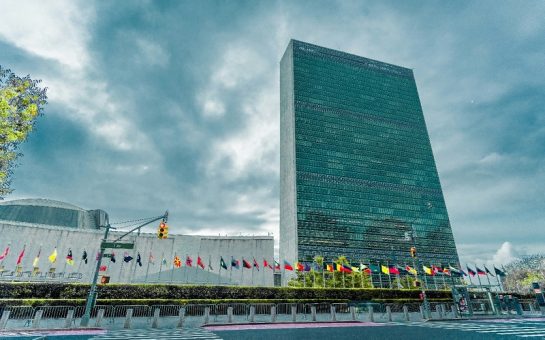With almost one billion people currently going to bed hungry every night, the United Nations says it is prioritising the eradication of global hunger by 2030.
The UN listed ending global hunger by 2030 as its second of 17 key Sustainable Development Goals, classifying 821 million people as undernourished.
Escalating violence, the climate crisis, and increases in fertiliser prices are some of the key negative forces driving global hunger.
Almost a billion people suffering from hunger paints a bleak picture, however, the UN optimistically states that the number of undernourished people has decreased by close to half in the past 20 years due to economic growth and agricultural productivity.
Monroe Lacerte, 35, Disaster Risk Management at NGO Plan International, has worked in the humanitarian sector for more than six years and is regularly deployed to regions where hunger and undernourishment issues persist.
She explained: “The climate-induced crisis has increased and hunger has been worsening in the last couple of years.
“There’s been more extreme weather and it’s just going to cause more and more erratic production and impact the most vulnerable communities that are going to be facing hunger in the coming years.
“Supply chain issues were exacerbated during COVID and we’re still feeling the effect of it.”
The Global Hunger Index (GHI) provides a score for the level of hunger by country, in 2000, 2008, 2015 and 2023 and takes various measures into account to rank each country’s hunger levels from low to extremely alarming.
Since 2008, no countries have been classified with extremely alarming levels of hunger and the number of countries with low risk of hunger continues to grow.
On a global scale, the number of countries achieving moderate (10.0-19.9) and low (9-0) rankings of hunger indices continues to grow.
Countries with alarming (35.0-49.9) levels of hunger are decreasing, however, countries with serious (20.0-34.9) rates of hunger are on the rise.
Uzbekistan, Bosnia & Herzegovina, Chile, China, and others have improved their hunger status from 2000 to 2023.
Croatia, Estonia, Kuwait, Latvia, and Belarus have maintained a low hunger rate from 2015 to 2023, taking successful steps to combat hunger.
Niger, Lesotho, Democratic Republic of the Congo, Yemen, Madagascar, Central African Republic, South Sudan, Burundi and Somalia maintained alarming rates of food insecurity.
While many have progressed, the existence of countries with high scores emphasises the need for continued global efforts to address hunger and food security.
The global hunger crisis is multifaceted – poverty, inadequate access to nutritious foods, conflict, instability, climate change, environmental degradation, population growth and inequitable food systems are all driving forces keeping millions hungry.
Lacerte highlighted that in some cases access to food is not the problem, the way the food has been processed or grown however is, making it nutrient deficient.
Other more specific issues related to hunger stem from an individual’s inability to absorb any nutrients or calories when their body has been consistently malnourished over a period of time.
The UN explains that of the regions worst affected, 60% are affected by extreme violence and their Food and Agriculture Organization states that it will take an annual investment of approximately $267 billion to achieve Zero Hunger by 2030.
Similarly, of the countries with the highest global hunger rates, detailed above – six of the ten are in a state of crisis, conflict or war.
Lacerte added: “You hear about people in conflict areas who will flee with their families and they’ll be living in a refugee camp, but they might still have one or two family members going home or crossing into dangerous areas just trying to maintain their land and to try and hold on to it.”
Global hunger and undernourishment are issues that are as complex and widespread.
Lacerte suggested that the onus cannot be solely on the United Nations, one entity cannot control the frequency of natural disasters or escalating violence.
Global hunger is a multipronged issue that needs to receive attention and buy-in from all walks of life, from policy makers to private businesses, everyone plays a role in diminishing hunger globally.
Image by atlascompany on Freepik





